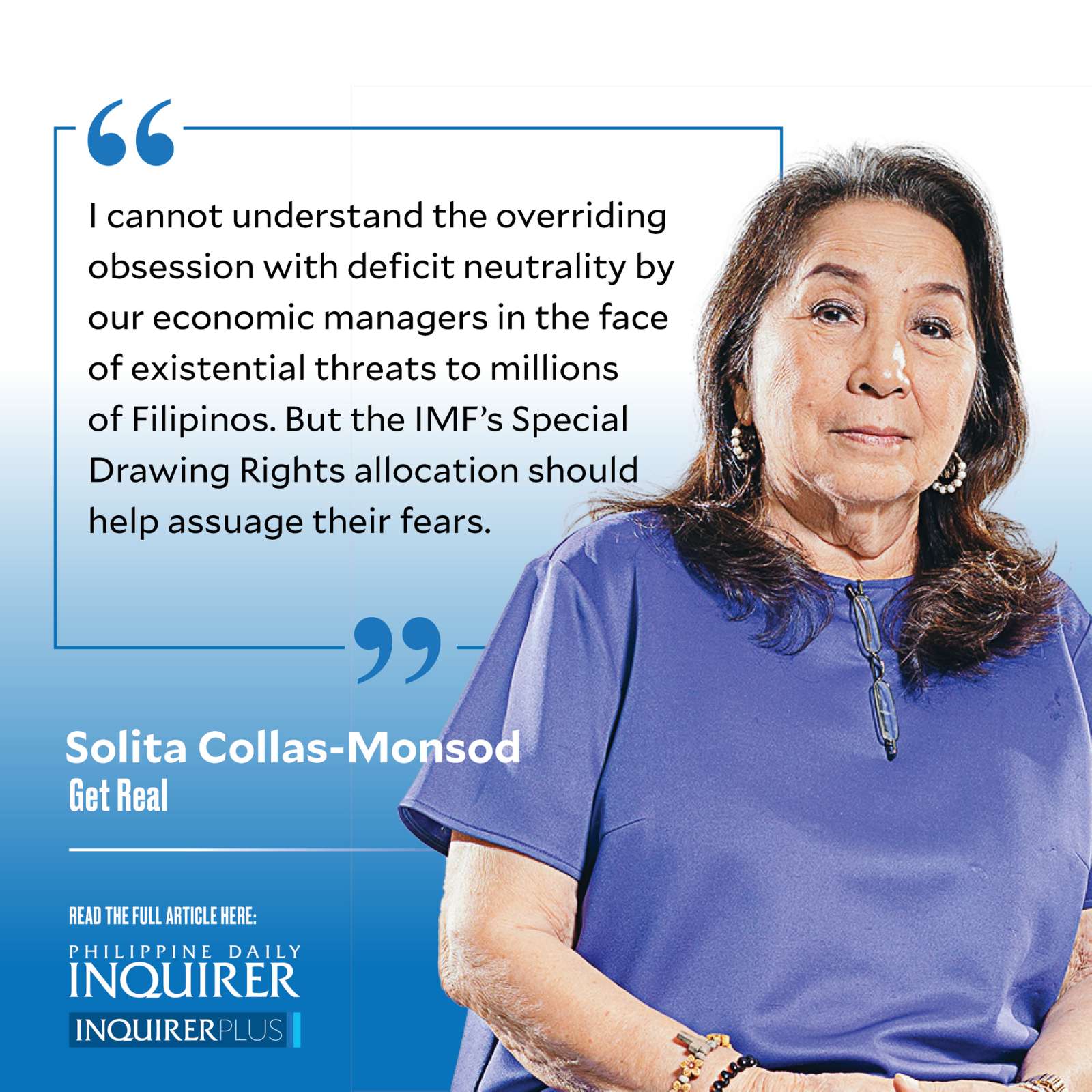A P140-billion bonanza from the IMF
The International Monetary Fund (IMF) has approved a general allocation of Special Drawing Rights (SDR) amounting to the equivalent of $650 billion (SDR 456.5). It is the fourth general allocation of the IMF since 1970-72, the third being in 2009 in response to the global financial crisis, and this allocation is almost three times larger than that oneʍbut still not enough, according to some quarters.
What does this have to do with us? A lot. For one, the Philippines gets a share of that allocation in accordance with our share (quota) in the IMF, which is about 0.43 percentʍor $2.795 billion (P139.75 billion at P50=$1). We will get this by Aug. 23. This is not a loan to us. It is free.
Article continues after this advertisementSo, essentially, that puts paid to our government’s moaning and groaning about not having enough funds to tide us over the two-week enhanced community quarantine (ECQ) and to help the vulnerable who are the most affected by the pandemic. Every P140 billion counts. You will recall the Development Budget Coordination Committee statement last May 2021 (before this ECQ was called): “Lastly, around P170 billion would be needed to fund supplemental social support for those hardest hit by the pandemic as well as to fund improved health protocols. A version of this proposal is currently being deliberated in the House of Representatives, and is contingent on raising additional savings and revenues to remain deficit neutral.”
I cannot understand the overriding obsession with deficit neutrality by our economic managers in the face of existential threats to millions of Filipinos. But the SDR allocation should help assuage their fears.
Since the allocation is distributed to IMF member countries in accordance with their respective quotas, the wealthier countries with the larger quotas get more. Oxfam has calculated that the wealthiest countries will get $400 billion, the middle-income countries (like us) will get $230 billion, and the low-income countries will get $20 billion. And since these wealthy countries don’t need their SDRs, they can give them (or lend them at 0 percent interest) to the countries of their choice. But this option has more or less been cut off from us by our President’s telling the world, except China and Russia, to go to hell. Maybe Foreign Secretary Teodoro Locsin Jr. can repair the damage.
Article continues after this advertisementTo quote the IMF: “So, how will a new SDR allocation help countries? The world is going through the worst economic crisis in peacetime since the Great Depression. In around 150 countries, income per capita this year will be lower than in 2019 (that includes us—SCM). Many countries are less able to pay for vaccines or invest in their recovery—and are more indebted.
“This is where a new SDR allocation comes in. It supplements countries’ reserves, using the collective strength of the Fund’s membership to make all 190 member countries a little stronger. It would provide liquidity support to many developing and low-income countries that are struggling, allowing them to pay for healthcare and support vulnerable people. All countries will benefit from a quick eradication of the virus. It is important to make sure they all have the financial resources to do that.“
In sum, the government gets this P140-billion bonanza from the IMF, which it should use transparently and properly.
But the private sector and businesses also have to do more, especially in the next two weeks. The Manila Golf and Country Club has allocated P3,500, 10 kilos of rice, and two dozen eggs to each of its 151 caddies and contractual workers. It is to be congratulated. And some individual members even pick up the remaining tab for their caddies.
I also ask the Philippine Constructors Association Inc. (which has engaged, enabled, and empowered its members for the 75 years of its existence): What have you done, as a group and individually, to help protect the construction workers who have worked for you all this time? They are among the hardest hit.
I ask the same question of banks. What extra efforts have you made to help your small depositors and your debtors?
I ask because you know this government, even if it were competent, cannot do it alone. And it is not competent.
——————
solita_monsod@yahoo.com

















